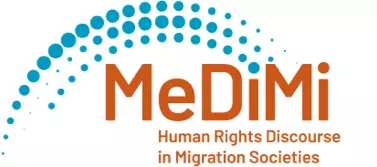Sub-project A.3
Human Rights Transformations of German Migration Law
The project examines the scope, forms, and consequences of the expansion of human rights discourse in German migration law. This is the branch of the German legal system that deals with the admission to the territory, the determination of the residence status, the right to asylum, social benefits for asylum seekers and persons with toleration status (Duldung), and with the integration and naturalization of immigrants. The project examines the extent to which the reception of international law in legislation and jurisprudence, as well as the practice of legal interventions by non-governmental organizations, has led to a human rights transformation of German migration law since 1993, the year in which its constitutional basis was last amended. At the same time, the project contrasts the process of “humanrightization” (Vermenschenrechtlichung) with the often substantively parallel processes of constitutionalization and Europeanization as well as with contrary developments such as a securitization of migration law. The project aims to shed light on the dynamics and (in)simultaneities of a transformation towards a rights-based migration law, the roles of state and civil society actors, and a possible linking of counter-discourses to a tradition of immigration policing that was believed to have been interrupted.
The focus is on the argumentation with human rights in legal, including politico-legal, discourses. In the project, the legal doctrinal method, which is often decisive in this respect, will be combined with quantitative and qualitative research methods from social sciences. In concrete terms, documents relevant to migration law from federal legislation and the jurisprudence of supreme federal courts will first be evaluated. These include laws from the 12th to 20th legislative periods of the German Bundestag, expert opinions and expert hearings of NGOs in the Committee on Internal Affairs of the Bundestag, decisions of the Federal Constitutional Court, the Federal Administrative Court, and the Federal Social Court, as well as briefs that can be assigned to strategic litigation. The corresponding corpuses are first quantitatively indexed with a computer-assisted full text search based on the mention of human rights norms. Quantitatively salient cases are subsequently extracted and evaluated in depth by a structuring qualitative content analysis.
Principal Investigator: Prof. Dr. Frederik von Harbou
Research Associate: Adriana Kessler
University of Applied Sciences Jena
